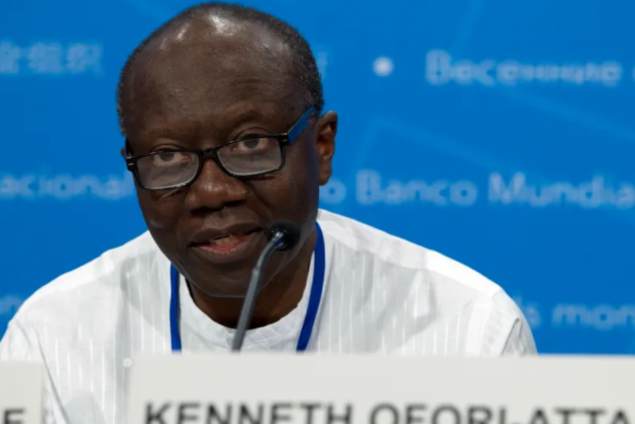Finance Minister, Ken Ofori-Atta, has outlined five key measures necessary for the government to pursue in order to secure an International Monetary Fund (IMF) support programme.
They are electricity tariff hikes which have brought the cumulative increase to 60% since August 2022 and Comprehensive set of revenue-enhancing measures, including increase in the Value Added Tax rate and the review of the Electronic Transaction Levy (E-levy).
The rest are the enactment of an ambitious 2023 Budget, with a frontloading of the fiscal consolidation programme, continued monetary policy tightening to bring inflation under control and comprehensive set of structural reforms, notably public expenditure review.
These were captured in the Investors Presentation by the Finance Minister and supported by the Governor of the Bank of Ghana, Dr. Ernest Addison.
With regard to fiscal and debt sustainability, the Finance Minister said the government has undertaken fiscal adjustment with revenue and expenditure measures to improve debt sustainability and restore macroeconomic stability.
This is expected to address structural bottlenecks including contingent liabilities of State Owned Enterprises, commitment controls and arrears accumulation as well as domestic revenue mobilization.
On monetary and financial sector reforms, Mr. Ofori-Atta said government is committed to rebuilding reserve buffers, mobilize external concessional financing from multilateral and bilateral partners, and suspend external debt service payments.
With regard to social protection and structural reforms, the Finance Minister said government will safeguard social protection programmes and ensure the burden of adjustment is fairly distributed.
Again, it will reinforce and improve the targeting of social spending to protect the most vulnerable from the impact of the economic crisis as well as fast-track the implementation of growth-oriented socio-economic policies, such as Ghana CARES to mitigate the impact of the pandemic and support economic recovery.
Government outlines 5 ambitious macroeconomic targets
Meanwhile, the government has outlined five ambitious macroeconomic objectives in the medium term as part of securing a programme from the International Monetary Fund.
They are reaching a 1.5% of Gross Domestic Product primary surplus in the medium term, bringing inflation below 8% in the medium-term and restoring external buffers with gross international reserves reaching 3 months of import cover by 2026.
The rest are reaching a real Gross Domestic Product growth target of 5% over the medium-term and enhancing competitiveness with exports surpassing 37% of GDP in the medium run.
Latest Stories
-
Asantehene bemoans non-completion of 18-year-old stalled KNUST Teaching Hospital
23 minutes -
MTN marks World MSME Day 2025 with call for digital inclusion and sustainable growth
33 minutes -
Kwasi Kwarteng appointed Spokesperson for Kennedy Agyapong campaign
34 minutes -
Inclusive, consultative appointment process will curb political animosity – Senyo Hosi on Asiedu Nketia’s criticism of EC
43 minutes -
Youth-led summit ignites bold call for reform at 2025 African Governance and Anti-corruption gathering
52 minutes -
If Torkornoo is cited for contempt, she brought it upon herself – Lawyer
52 minutes -
Victoria Bright urges truth and accountability following Asiedu Nketia’s criticism of EC
1 hour -
Razak Kojo Opoku rejects efforts to tie Bryan Acheampong to 2014 Alhaji Bature article
2 hours -
Herman Suede and The Therapist reunite for “One by One II”
2 hours -
Zoomlion deploys 200 new trucks to tackle waste management nationwide
2 hours -
Afreximbank appoints Dr George Elombi as next president
2 hours -
Stanbic launches ‘Trade Connect’ to propel Ghanaian businesses
2 hours -
Kwame Poku signs for Championship side QPR
3 hours -
BSM commissions new maritime training centre at Regional Maritime University
3 hours -
Defence Minister provides important update on upcoming officer corps enlistment
3 hours

